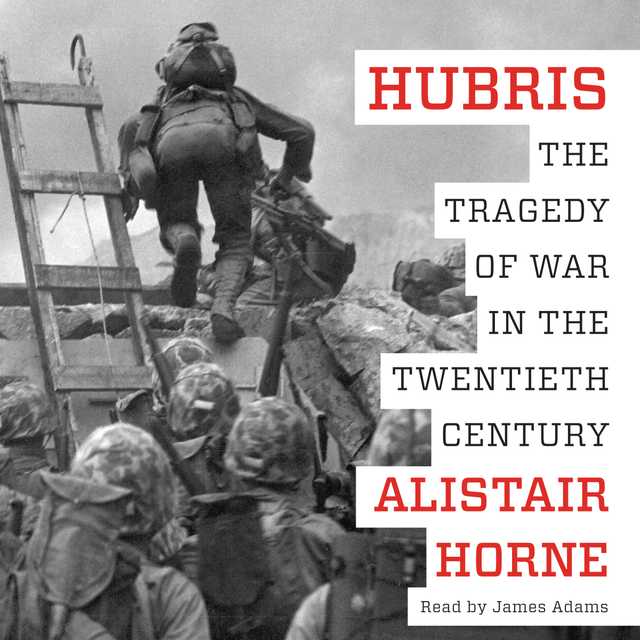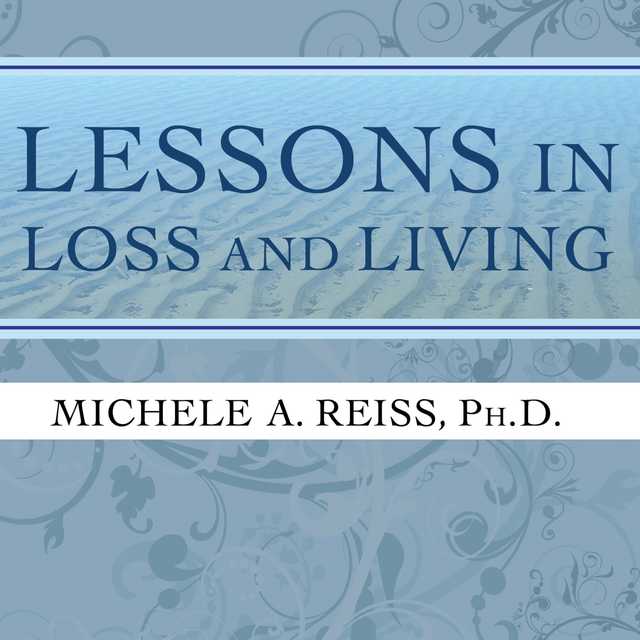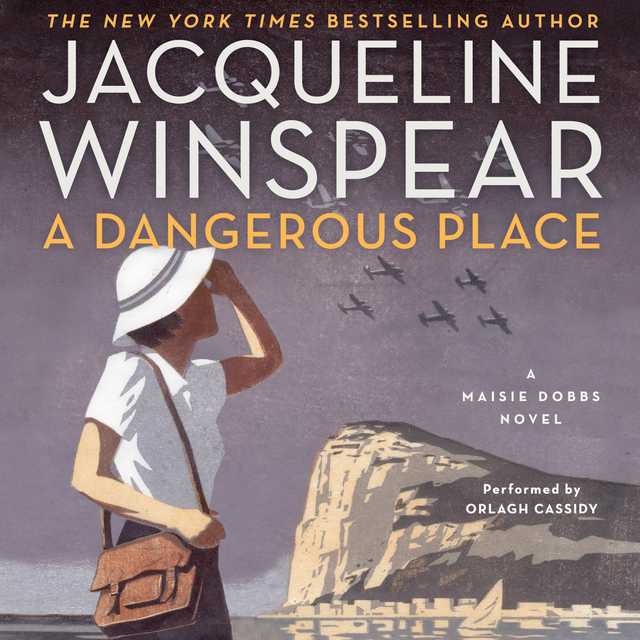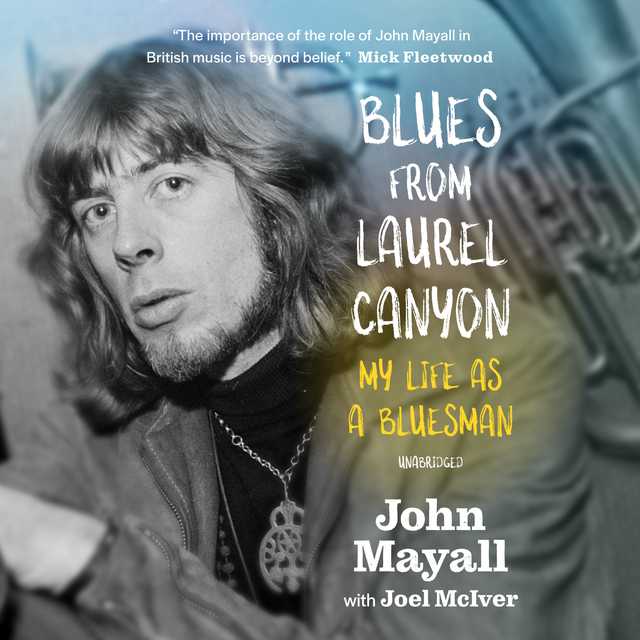Hubris Audiobook Summary
“EMINENTLY PROVOCATIVE AND READABLE.”–THE WALL STREET JOURNAL
Sir Alistair Horne has been a close observer of war and history for more than fifty years and in this wise and masterly work, he revisits six battles of the past century and examines the strategies, leadership, preparation, and geopolitical goals of aggressors and defenders to reveal the one trait that links them all: hubris.
In Greek tragedy, hubris is excessive human pride that challenges the gods and ultimately leads to total destruction of the offender. From the 1905 Battle of Tsushima in the Russo-Japanese War, to Hitler’s 1941 bid to capture Moscow, to MacArthur’s disastrous advance in Korea, to the French downfall at Dien Bien Phu, Horne shows how each of these battles was won or lost due to excessive hubris on one side or the other. In a sweeping narrative written with his trademark erudition and wit, Horne provides a meticulously detailed analysis of the ground maneuvers employed by the opposing armies in each battle. He also explores the strategic and psychological mindset of the military leaders involved to demonstrate how devastating combinations of human ambition and arrogance led to overreach. Making clear the danger of hubris in warfare, his insights hold resonant lessons for civilian and military leaders navigating today’s complex global landscape.
A dramatic, colorful, stylishly-written history, Hubris is a much-needed reflection on war from a master of his field.
Other Top Audiobooks
Hubris Audiobook Narrator
James Adams is the narrator of Hubris audiobook that was written by Alistair Horne
Sir Alistair Horne is the author of over twenty books on history and politics. They include A Savage War of Peace: Algeria 1954-1962 (winner of the Wolfson Prize); The Price of Glory: Verdun 1916 (winner of the Hawthornden Prize); How Far from Austerlitz?: Napoleon 1805-1815 ; and Seven Ages of Paris . In 1969, he founded the Alistair Horne Fellowship to help young historians at St. Antony's College, Oxford. He was awarded the French Legion d'honneur in 1993 and received a knighthood in 2003 for his work on French history. Horne and his artist wife, Sheelin, live in Oxfordshire.
About the Author(s) of Hubris
Alistair Horne is the author of Hubris
More From the Same
- Author : Alistair Horne
- Seven Ages of Paris
- A Savage War of Peace
- The Age of Napoleon
- Publisher : HarperAudio
- Abraham
- American Gods [TV Tie-In]
- Dead Ringer
- House of Sand and Fog
- Prey
Hubris Full Details
| Narrator | James Adams |
| Length | 12 hours 30 minutes |
| Author | Alistair Horne |
| Category | |
| Publisher | HarperAudio |
| Release date | November 17, 2015 |
| ISBN | 9780062420831 |
Subjects
The publisher of the Hubris is HarperAudio. includes the following subjects: The BISAC Subject Code is 20th Century, History, Modern
Additional info
The publisher of the Hubris is HarperAudio. The imprint is HarperAudio. It is supplied by HarperAudio. The ISBN-13 is 9780062420831.
Global Availability
This book is only available in the United States.
Goodreads Reviews
Joseph
January 05, 2016
This is presumably Alistair Horne's last work, and it's a solid end to a life of journalism and research in military affairs. Horne, as always, is an engaging writer and grand storyteller. The book is an odd sort of project, though. It's really just 6 battles/wars that he had never written much about in the past and wanted to in his old age. He covers Tsushima, Khalkin-Gol, Moscow, Midway, the Korean War, and Dien Bien Phu. Scholars won't find a lot to chew on here, but military buffs will really enjoy his accounts of these campaigns. In particular, Horne does a great job explaining the rise and fall of Japan . By far the best (and longest) of his sections in this book are on Tsushima and Khalkin-Gol, two underrated and largely unknown battles that had immense effects on 20th century history and the Second World War in particular.The thesis of the book is loose, inexact, but still interesting. He faults leaders in each of these battles for their decisions made under the fog of hubris. Of course, there's so much that goes into winning or losing that Horne can't just boil everything down to hubris. Much of the hubris has to do with leaders: Russia's assumption that they could sail around the world and beat Japan in 1904-1905; the Kwantung Army's underestimation of Soviet tank units in Mongolia; Yamamoto's multi-objective plans in the Pacific that spread his forces too thin; Hitler's various forms of hubris during Barbarossa, French underestimation and disdain for the Viet Minh, and, well, Macarthur. A common theme here is the victory disease: people and societies who are on a roll tend to become less cognizant of their own fallibility and weaknesses, and they are more likely to bite off more than they can chew as a result. Racial prejudice also played a major role in virtually all of these cases. The peripeteia (or downfall of the hubristic protagonist) in each of these cases was deeply costly, in many cases setting the stage for the virtual destruction of societies. A final interesting point by This book only covers 6 battles, and only in the 21st century. Horne's epilogue covers the transformation of Israel's attitudes after the Six Days' War and the formation of their own victory disease. I would have loved a separate chapter on this. But, like most history, it should impress a sense of humility in its readers. Far from the can-do spirit, a lifetime of studying conflict has convinced Horne that human beings almost cannot look at themselves and their rivals objectively, and that our inherent flaws make war, the most perilous human enterprise, very likely to blow back in our faces. For any person or nation to convince themselves that they are exempt from these foibles is to cover up their historical rear-view mirrors and drive blindly into the fog of war.
Ben
July 28, 2022
3.5 Stars.This is the second book by Alistair Horne that I have read, the first being the Price of Glory. I found the earlier parts of this book, the areas related to the Russo-Japanese war and the battle of Khalkin Gol to be most informative. Once the author got into the Korean War and then The French war in Indochina the authors political leanings came out in reactionary ways that are hard to reckon with the history being discussed. How can one argue that the Viet Minh were in the wrong to fight for independence against a violent Colonial oppressor? How can you fairly castigate the north Koreans after just acknowledging that North Korea was bombed more heavily than Japan or North Vietnam. The country was, under the auspices of the United Nations leveled. Bombed into the stone age and yet Horne notes the South became an "economic miracle." Fancy that I wonder what else occurred or didn't occur in the South. Essentially a fun read but his anti-communist reactionary views were tiresome and nonsensical.
Daniel
November 22, 2015
Fascinating and with the touch of a master storyteller's hand, if there's one history I will recommend this Christmas season, it will be Alistair Horne's Hubris: the Tragedy of War in the Twentieth Century. Interesting and accessible, Horne's approach is a narrative that doesn't merely tell a story, but also examines hubris in the tides of battle. It is well researched, cites relevant sources and histories, and is persuasive, not to mention thoroughly engaging to read. Beginning with the Russo-Japanese War of 1905 and ending with the last battle of the First Indochina War (the second being our Vietnam War), Dien Bien Phu, all of the battles that Horne examines fall roughly in the first half of the twentieth century, and with the exception of the Battle of the Straights of Tsushima, the final of the Russo-Japanese War, are all closely grouped around a period extending from 1939 to 1954. I'm sure there are plenty of histories that include each of the battles, but it was fascinating to view them through the lens of a nation or leader acting on hubris and taking his force beyond their capabilities. In Tsushima, we see the last battle between battleships, the last time a battleship was sunk by force of cannons. With its fleet in the Pacific scattered by the Japanese, Russia sent its Baltic Fleet around the Horn of Africa, across the Indian Ocean, and north to bolster defenses on the Korean peninsula. With building drama and suspense, Horne tells the story of the opposing admirals, each with dramatically different personalities and management styles. Here are the vivid colors of a final engagement equal in decisiveness to the English and French meeting at Trafalgar under Lord Nelson. Japan and Russia are also the opposing forces in Horne's second battle, over thirty years later at Nomonhan inside of Mongolia. It is Gregory Zhukov's first major step on the world stage, and it will bring him to Stalin's attention as Zhukov first executes the maneuvers that he will later use against the Germans during Operation Barbarossa during the invasion of Russia.It is during this invasion that we see Stalin stand in shocked silence at the news that Germans have invaded the Fatherland, despite repeated warnings not only from military leaders but from spies abroad. In what will become the largest battle in history and a turning point in the war, Hitler will extend himself too far to attempt to capture Moscow and, like Napoleon before him, be defeated by poor planning and the Russian winter.The fourth engagement is the Battle of Midway, early in the United States' involvement in World War II, and interestingly, it is the third that involves the Japanese. Last is a combination of General McArthur in Korea and the French in Indochina (Vietnam). I've recently read The Generals, by Thomas Ricks, which overlaps the Korea war therein, but this was the first account I've read about Dien Bien Phu.In each battle, Horne does more than just lay out the battle lines and order of battle. He steps back and sketches out relevant previous history leading up to it, providing context and color to the personalities behind the facts, dates, and troop movements. I found the writing absolutely fascinating, and I would definitely consider reading other books by Horne.
James
December 16, 2015
Thought-provoking - too much of military history is about dates, places, machines, logistics, and what went right/wrong but not why. This is about the titular psychological failing and its devastating impact on the lives of millions.The author had to choose from enough examples from the 20th century to fill an encyclopedia, and chose well - where he did cover well-known events, he looked at aspects that haven't been as well documented as the rest of the picture.This should be required reading in officer training everywhere.
Craig
January 06, 2016
Excellent book for anyone interested in military history as a field of study. Also a very strong overview of critical moments and the decision-making within the major conflicts of the 20th Century.
Shelley
May 31, 2016
Noted historian Horne has written a well researched and documented account of 6 military engagements less well known to lay readers. He ties these battles together as representative of hubris, the extreme arrogance to which military and national leader succumb, leading to foolhardy and risky engagements with the enemy. The reader is provided a rare glimpse into the psychology of war on a strategic level, the results of failing to examine the lessons of history, and the self aggrandizement of leaders. Each contributes to poor decisions. The consequent defeats are career ending for the leaders, but worse, result in the deaths of countless men and women. Highly recommended for readers who like their history well researched, beautifully relayed, and relevant to current events.
Julian
September 09, 2019
Very enjoyable web of tales from war history, woven together around the theme of hubris. I'd have to agree with a lot of the other reviewers that the hubris theme seems tenuous at times but it doesn't really take away from the stories anyway. The story of the Russian voyage around the world and battle of Tsushima was amazing. Each story is explored from multiple dimensions, including technological, personal/emotional, political, etc. I'm not exactly a war or history buff but would recommend this book to other readers like me.
Marcos
December 30, 2019
Hubris is a diseaseWe all have experienced that feeling at one time or another: that feeling that our plans will always go perfectly and that no defeat will mar our future. It is a disastrous disease on an individual level and a catastrophic one when it involves nations and armies. Through a few examples taken from contemporary history (Tsushima, Nomonhan, Midway, Moscow, Dien Bien Phu and the Korean War), the author takes us on a cautionary tale about the evils of hubris and its consequences. Very well written and eye-opening.
Adil
December 09, 2018
An odd case where the book really needed to be a lot longer to justify its central thesis.The central thesis of teh book is that Hubris has been the central factor behind 20th Century warfare starting from Japan & Russia at the turn of the century all the way through to WW2 and up to Dien Bien Phu.While its very well written and makes a strong case for this in the early Chapters of Japan vs. Russia, it loses steam after that. This is as your almost halfway through the book when you realize that only one central thread has been addressed (Japan through WW1 & 2). That leaves WW2 Germany vs. Russia, Korea and Vietnam to be resolved in the balance - all of which are meaty topics. WW2 Germany then takes up almost half of the balance meaning the closer we get to the post WW2 period the less time there is. I found the chapters on Korea and Vietnam (And literally they are only Chapters) to be therefore inadequate.This is a shame as I think there is an interesting story there that really would make the case with the Hubris disease shifting onto the US across the Korea and Vietnam conflicts (Let alone if one was to drive a through-line to Afghanistan and Iraq).Still I can't say I didn't enjoy it (Which I did immensely) and if my only complaint is that I wish there was more of this then that a good complaint to have.
James
September 17, 2017
The best part of this book was that it covered pieces of 20th Century military history that I knew almost nothing about. While I consider myself an aficionado of military history, my knowledge is mostly limited to WWI and WWII in Europe. So Moscow in 1941 was the only chapter I really knew about. It was quite enlightening to see how the Russian victory at Nomomhan over the Japanese in 1939 prepared them to take on Hitler before Moscow. And enlightening to see how undeclared Japanese aggression in 1905 cleared the way for Pearl Harbor 36 years later.The notion of Hubris is an interesting one to bring to bear in Horne's examination of the echoes of military history. Nevertheless it felt as though it was selectively used. There are defeats that can certainly be attributed to hubris, but it sometimes felt the concept was being stretched to make the point. Surely there are equally important defeats in which it plays no part--e.g., the German defeat in France in 1944, the English defeats in North Africa in 1941. So I thought the title was a bit of oversell. But I liked the selection of topics in the book, and I like Horne as a military historian, who passed away this spring at the age of 91.
Chad
May 01, 2022
Eminent historian Alistair Horne studies what he considers the 6 most pivotal battles of the 20th century with an eye toward how hubris and arrogance impacted the outcome. In this work he uses leadership, contextual history, preparation, and protagonist goals as the lenses and focus of what ultimately led to their battle hubris. These battles that ultimately led to downfall include the likes of the Battle of Tsushima and Russo-Japanese Wars, as well as the Japanese and Nazi’s (ala Hitler’s) attitudes and contributory factors, as well as Douglas MacArthur’s hubris in Korea. Through detailed analysis driven by dramatic narrative, Horne takes us into the minds of the decision makers, relating how their calculations led them down a path where they either won or lost. The insights Horne brings to the table should make military leaders pause briefly, about their own capabilities, but to political leaders, too, the lesson should be that using diplomacy is still the best first instrument of power to come out of the quiver. An excellent read!
Guy
January 13, 2021
So true:During the Russo-Japanese naval encounter... “In both incidents the element of surprise was achieved in that war had not been declared and diplomatic negotiations were still under way. As Commander Fuchida, the dashing leader of the attacking squadrons at Pearl Harbor, exclaimed in amazement: “Have these Americans never heard of Port Arthur?” But, to the dismay of us historians, our leaders tend not to read history, or, worse, they pay no attention to its lessons. Yet it does seem extraordinary that, in 1941 with tensions rising between the United States and Japan, Franklin Delano Roosevelt did not seem aware of the dangerous precedents; after all, he himself had been assistant secretary of the navy in the First World War, only a decade after the attack on Port Arthur, and was well read in history.”Excerpt From: Alistair Horne. “Hubris.” Apple Books.
Jeremy
June 10, 2018
Another wonderful title by my favorite historical writer. While sometimes I feel Sir Horne loses sight of the theme of his book, that of man's hubris and rash decisions based thereon, it still ends up being another informative, poetic, and fascinating read. Covering the Sino-Japanese War, the Russian-Japanese War, World War I, World War II, French Indochina, the Korean War, and even Vietnam, Sir Horne talks about underestimation of one's opponent, and the dehumanizing attitude of major powers to their perceived lessors, based on race, technology, and old grudges, and how that attitude contributed to great losses of life in those conflicts. Great read for any interested in 20th Century history. I learned a great deal about Japan and its conflicts that I knew nothing about previously.
Jordan
May 21, 2018
A re-organization of historical facts to support the author's notion that wars are not won, but rather, they are lost by the Hubris of the losers. There are some disputable ideas put forth by Mr. Alister Horne, notably that the Korean War was started at the instigation of Stalin. There is in fact much evidence that Stalin warned the leader of North Korea that he "should not come looking for Soviet troop support when he (Kim Il-sung) would get his teeth kicked in". In the end, it was the Chinese army that crossed the Yalu River bordering North Korea like a human tsunami.In the words of another target of Mr. Horne's ire, President Truman, "there is nothing new under the sun except the history you have not learned". There is precious little in this book that we have not seen before.
Liam
July 18, 2022
Mr. Horne is an exceptional historian - I refuse to limit it by saying he is a military historian - anyone who has read his account of debacle of France in Algeria 'A Savage War for Peace' knows hat he is no mere raconteur of battles. This is why this book is so good, necessary and needs to be read widely - particularly by politicians and military men - because war in the 20th century has less often been a tale of quick victories providing political boost - like the Falklands or the first Gulf War - and much more like the quagmire that most recent wars in the gulf, and elsewhere, have been.Read it - it is brilliant - and try and remember the lessons he offers when next a quick talking merchant of death preachers glib or easy answers that put the lives of others on the line.
Bryan
July 01, 2020
The famed military historian explores the role of Hubris and its inevitable consequence Nemesis through that bloodiest of centuries, the 20th. Horne covers some very well worn ground in the siege of Moscow and the Battle of Midway, some middling known ground in Dien Bien Phu and the Korean War and some less well known ground in the battles of Tsushima and Nomonhan, the first a Japanese humiliation of Russia in 1905, the second a Russian defeat of Japan in 1939. Horne's treatment of Tsushima is masterful with a thorough account of all the obstacles faced and self-inflicted wounds suffered by the Russian Fleet prior to its destruction.
Book Grocer
August 25, 2020
Purchase Hubris here for just $8! Noted historian Sir Alistair Horne takes six decisive battles in the first half of the 20th century and demonstrates how ambition and arrogance led to the deaths of countless men and women. Reveals valuable lessons in the strategic psychology of war and the tragic consequences of excessive human pride.Herman - The Book Grocer
Most Popular Audiobooks
Frequently asked questions
Listening to audiobooks not only easy, it is also very convenient. You can listen to audiobooks on almost every device. From your laptop to your smart phone or even a smart speaker like Apple HomePod or even Alexa. Here’s how you can get started listening to audiobooks.
- 1. Download your favorite audiobook app such as Speechify.
- 2. Sign up for an account.
- 3. Browse the library for the best audiobooks and select the first one for free
- 4. Download the audiobook file to your device
- 5. Open the Speechify audiobook app and select the audiobook you want to listen to.
- 6. Adjust the playback speed and other settings to your preference.
- 7. Press play and enjoy!
While you can listen to the bestsellers on almost any device, and preferences may vary, generally smart phones are offer the most convenience factor. You could be working out, grocery shopping, or even watching your dog in the dog park on a Saturday morning.
However, most audiobook apps work across multiple devices so you can pick up that riveting new Stephen King book you started at the dog park, back on your laptop when you get back home.
Speechify is one of the best apps for audiobooks. The pricing structure is the most competitive in the market and the app is easy to use. It features the best sellers and award winning authors. Listen to your favorite books or discover new ones and listen to real voice actors read to you. Getting started is easy, the first book is free.
Research showcasing the brain health benefits of reading on a regular basis is wide-ranging and undeniable. However, research comparing the benefits of reading vs listening is much more sparse. According to professor of psychology and author Dr. Kristen Willeumier, though, there is good reason to believe that the reading experience provided by audiobooks offers many of the same brain benefits as reading a physical book.
Audiobooks are recordings of books that are read aloud by a professional voice actor. The recordings are typically available for purchase and download in digital formats such as MP3, WMA, or AAC. They can also be streamed from online services like Speechify, Audible, AppleBooks, or Spotify.
You simply download the app onto your smart phone, create your account, and in Speechify, you can choose your first book, from our vast library of best-sellers and classics, to read for free.
Audiobooks, like real books can add up over time. Here’s where you can listen to audiobooks for free. Speechify let’s you read your first best seller for free. Apart from that, we have a vast selection of free audiobooks that you can enjoy. Get the same rich experience no matter if the book was free or not.
It depends. Yes, there are free audiobooks and paid audiobooks. Speechify offers a blend of both!
It varies. The easiest way depends on a few things. The app and service you use, which device, and platform. Speechify is the easiest way to listen to audiobooks. Downloading the app is quick. It is not a large app and does not eat up space on your iPhone or Android device.
Listening to audiobooks on your smart phone, with Speechify, is the easiest way to listen to audiobooks.






























